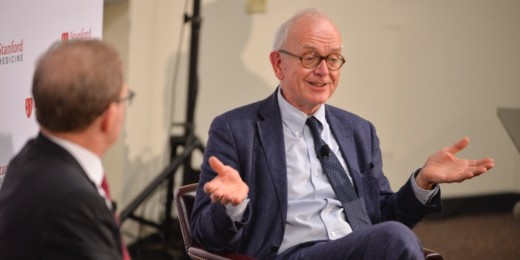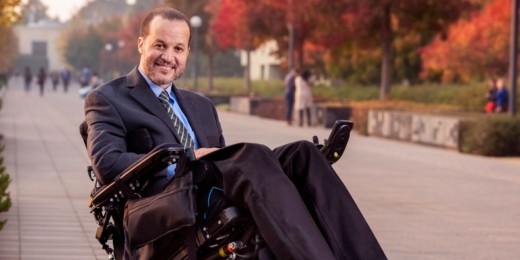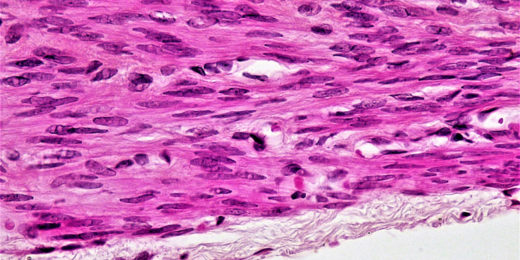A study in Nature details a discovery with potential clinical significance for treating eating disorders such as anorexia. To make that discovery, Stanford researchers had to develop a "first-time-ever" way of teasing apart two separate but closely intertwined sets of identical-appearing neurons in the brain.
Month: January 2019
Explore a cornucopia of accomplishments in prematurity research
A compilation of stories highlights the work of Stanford prematurity experts, who are advancing how we understand and predict premature birth.
Is mindfulness worthy of all the hype?
The benefits of mindfulness — touted as a panacea for a myriad of problems from anxiety to chronic pain — has come under some debate.
Henry Marsh shares insights into neurosurgery and more at Dean’s Lecture Series
Dean Lloyd Minor welcomed the neurosurgeon/author Henry Marsh to Stanford at a recent Dean's Lecture Series talk.
Three gifts I’m glad I gave myself in 2018
Fulfilling relationships, no-tech time and forgiveness are the three things this medical student says have made her feel re-energized, focused and happy.
Precision health approach tapped to identify causes of poverty
A new approach to identifying the factors linked to poverty could help researchers identify ways to prevent it.
Superior technique identified that can block CRISPR gene editing
A team of Stanford researchers has investigated several ways to block CRISPR gene editing and have found one that seems to work best.
Physician-scientist’s “indomitable spirit” prevails over personal adversity
As an African-American with chronic illness, Eric Sibley prevailed in academic medicine where few colleagues shared his challenges.
Learning to converse and connect with a patient: A medical student writes about her first try
Stanford medical student Anna Goshua reflects on her first assigned encounter with a patient.
On the importance of including pregnant women in clinical trials: A Q&A
A Stanford physician argues pregnant women should be appropriately included in clinical research to improve their health and the health of their fetuses.
On courage and cancer
In this excerpt originally in Months to Years, Michelle Mindlin reflects on how she found courage as she faced cancer repeatedly.
In the Spotlight: Hormone regulation and science fiction
Graduate student Krissie Tellez discusses her research on hormones and offers advice for future graduate students in this In the spotlight Q&A.
This sensor can monitor blood flow – then disappear
An interdisciplinary team of Stanford researchers have developed a implantable, biodegradable, wireless and battery-free blood flow sensor.
Watch list: 10 recommended films about medicine
Stanford Medicine film buffs recommend documentaries, feature films and short videos that offer compelling looks at the medical world.
Continuity of care: The benefits of adding a long-term option to medical school rotations
Medical student describes how continuity clinic helps him gain real-life outpatient medical training that's essential to his residency.
Identification of first-in-class enzyme involved in childbirth and muscle diseases
New Stanford research has identified an enzyme that plays a critical role in uterine contractions as well as in other muscle tissues.
















